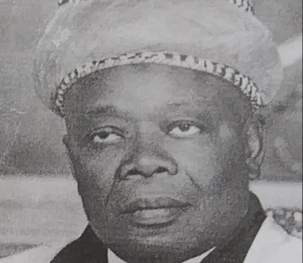By SKS
This year marks the 37th anniversary of the passing of Alhaji Sheik Gibril Sesay (1909-1988), a towering figure whose lifelong dedication to Islam and education has left an indelible mark on Sierra Leone’s spiritual and cultural landscape.
Born in Port Loko in 1909, Alhaji Sheik Gibril Sesay’s journey of service and knowledge began at a young age. His pursuit of Islamic scholarship took him from local schools in Freetown to notable studies in Senegal, the Gambia, and ultimately at Egypt’s prestigious Al-Azhar University, where he graduated in 1946.
According to the Chairman of the Gibril Sesay Islamic Foundation, Macksood Gibril Sesay, his father’s return to Sierra Leone heralded a new era of Islamic activism, leadership, and community development.
Macksood Gibril Sesay recounted that over decades, Sheikh Gibril Sesay’s unwavering commitment to propagating Islam and fostering Islamic education reshaped Sierra Leone’s religious fabric.
From forming the Mukarimeen Islamic Social Group in the 1940s to spearheading the establishment of the first Muslim Temne school in Freetown, his efforts consistently aimed at strengthening Islamic culture and learning.
He highlighted that his father’s leadership roles were numerous—serving as Imam of the Temne Central Mosque, Secretary General of the Sierra Leone Muslim Congress, President of the Sierra Leone Muslim Pilgrims Association, and the first Sierra Leonean ambassador to Egypt.
As a diplomat, scholar, and community organizer, Sheikh Gibril Sesay worked tirelessly to elevate the status of Sierra Leone’s Muslim community on both national and international stages.
In an interview with Awoko Newspaper, Macksood noted that his father was a pioneer in Islamic broadcasting, adding that he was instrumental in establishing Sierra Leone’s first Islamic radio station, Al-Quran Al-Karim Broadcasting Station, in 1984, bringing religious teachings directly into homes across the country.
His advocacy, according to Commissioner Macksood, culminated in the recognition of Prophet Muhammad’s (PBUH) birthday as a public holiday in Sierra Leone—an achievement celebrated annually with fervor and devotion.
“Sheikh Gibril Sesay’s visionary leadership extended to education, where he facilitated scholarships, organized pilgrimages, and promoted Islamic studies at home and abroad,” Macksood disclosed.
His efforts, according to Macksood, not only expanded the reach of Islamic knowledge but also fostered a sense of unity and cultural pride among Sierra Leoneans of diverse backgrounds.
As the 37th anniversary of his passing is observed, the Gibril Sesay Islamic Foundation (GSIF) commemorates his legacy—a legacy of servant leadership, unwavering faith, and dedication to knowledge. His life story continues to inspire generations of Islamic scholars, community leaders, and believers who strive to uphold his ideals of service and spirituality.
“Alhaji Sheik Gibril Sesay’s enduring influence exemplifies the spirit of service in Islam,” Commisaioner Macksood noted.
His contributions, according to Commissioner Macksood have laid a foundation that future leaders continue to build upon, ensuring that his vision for an educated, united Muslim community in Sierra Leone endures


